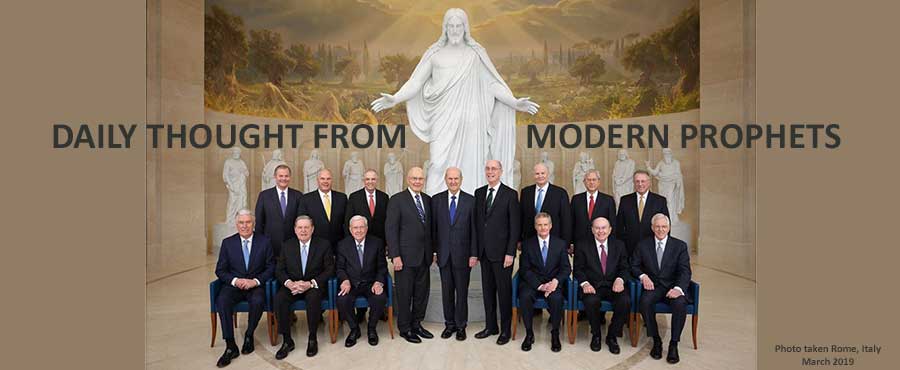"Each temple building is an inspiration, magnificent and beautiful in every way, but the temple building alone does not bless. The endowed blessings and divine functions—involving much that is not of this world, such as priesthood keys—come through obedience and faithfulness to priesthood authority and covenants made....
"In the temples of the Lord, we learn obedience. We learn sacrifice. We make the vows of chastity and have our lives consecrated to holy purposes. It is possible for us to be purged and purified and to have our sins washed away so that we may come before the Lord as clean, white, and spotless as the newly fallen snow."
- James E. Faust, “Who Shall Ascend into the Hill of the Lord?”, Ensign August 2001, pp. 2-5
Click here to read or listen to the full talk
From where do temple blessings flow? Are they the result of only attending the temple? President Faust suggests that "the endowed blessings" of attending the temple will come as we live faithfully, in accordance with the covenants we make in the temples and elsewhere:
Another important part of the blessings of temple attendance and worship is the things we learn and experience there. We learn obedience and sacrifice; we make sacred covenants of chastity and consecration. Is it any surprise that acting upon the things we learn and experience will bless our lives profoundly, including leading us "to be purged and purified" we we prepare to meet the Lord?
(Compilation and commentary by David Kenison, Orem, Utah, 2018)


































